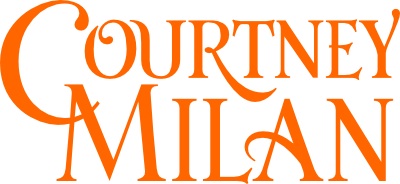So, you’re traditionally published. And you like being traditionally published. And you don’t want to not be traditionally published. But that doesn’t mean that you shouldn’t care about self-publishing, because there are four ways that self-publishing is complementary to–not contradictory with–traditional publishing.
1. You can use self-publishing as a threat in contract negotiations. Up until now, you go into contract negotiations and say, “I want a pony! And a better e-royalty rate!” They have patted you on the head and said, “Or else what?” You now have an “or else.” You won’t use it, but they don’t have to know that.
2. You might have backlist titles, and you can get the rights back to them and self-publish them. Yes, there’s still work involved–you’ll need a new cover and you’ll need to perhaps scan the titles in, proof them, and format them–but you won’t have to deal with editing.
3. You might want to write a novella, to bring in new fans to your series–or potentially, to tide your fans over while they wait for your next.
4. You only sold North American rights to your novels. Did you know that on Amazon, you can put up books and restrict the territories to the other 283 countries that are not in North America? You can get your books in front of an international audience. Next time someone e-mails and says, “I can’t get your books in ____!” then you can let them know they can.

#4 only works if you were able to retain your foreign rights, right? I’m assuming so. It stinks to not be able to retain certain rights. As a debut novelist, I didn’t have much to negotiate with at all.
Sandy, yeah, #4 only works if you only sold NA rights. I know some authors for whom this is true. I’m not one of them either. 🙁
If you have another piece that is not in the genre you’re building your audience in, and you know your agent and publisher have no interest in it, you can self-publish it (perhaps under a different pen name).
Tara Maya
The Unfinished Song: Initiate
How does # 2 and # 3 fit in with the contract between author and agent? Specifically, I’m thinking of the derivative and related works clauses in an agency contract and the right to receive commission for a “Work”. With respect to the latter, do you still have to pay an agent commission on any sales of a self-published backlist title which was the subject of an agent contract? How negotiable are contracts between author and agent?
Lynnd,
It depends on the contract. I really can’t speak generally because clauses are all over the map.
My contract gives my agent an exclusive right to negotiate on my behalf, but she and I have discussed this and we agreed that the contract contemplates sales to traditional publishers, and so my self-publishing is outside the box of our contract. I don’t think all agents agree, nor were their contracts as fair as mine.
The negotiability of the contract is really going to depend on the author and agent at issue, really!
That being said, I think that any agent that asks for 50% is tacitly admitting that the contract as it currently exists does not cover self-publishing–otherwise, why would you need to negotiate a different rate?
Thanks Courtney – I have never had the opportunity to try to negotiate an author/agent contract, but I have had the opportunity to look at a couple. The ones I have seen include very broad language regarding payments and include payments from “purchasers” and “licensees” of the Rights and include payment for any work sold for the entire copyright peeriod. I was just courious as your thoughts on how the traditional agent/author relationship & contract might change or be affected by the new options authors have to self publish. As you noted above with publishers, negotiability is going to depend on how badly the parties want the deal (i.e. if an agent or publisher really wants the work and the author has options, then the agent or publisher is likely to be willing to negotiate the terms of the contract).
Mine definitely does not include payment for any work sold for the entire copyright period.
It says: “NLA agrees to be your sole and exclusive representative in negotiating all rights….” and then when talking about the commission, it applies to “all monies and other consideration due or payable to you by reason of contracts NLA has negotiated for you.”
It’s a really fair contract, and my agent has been really fair about this whole venture. I know that a lot of agents have not been quite so understanding, but I just think that’s a poor long-term strategy–if I had one of those other agents, I would probably have left her.
I don’t think it’s a good business model for an agent to throw the book at her client right now, no matter what the contract says. If the client’s making money, she can always find an agent who will treat her fairly.
I was looking at one of my contracts just this morning, thinking, “perhaps I might pull this and then self-publish…” until I hit the clause in the contract that says I can’t use the edited version. Granted this was for a book originally e-published, but I hear, all the time, of people taking their backlists, scanning them in (if they are out of print) and voila. Instant product.
Is it common for there to be a “can’t use the edited version” in traditional publishing contracts? Or is this something only the e-publishers thought of and put in?
Ericka, I have no idea. I’ve never actually seen contracts from e-publishers. Ask around?